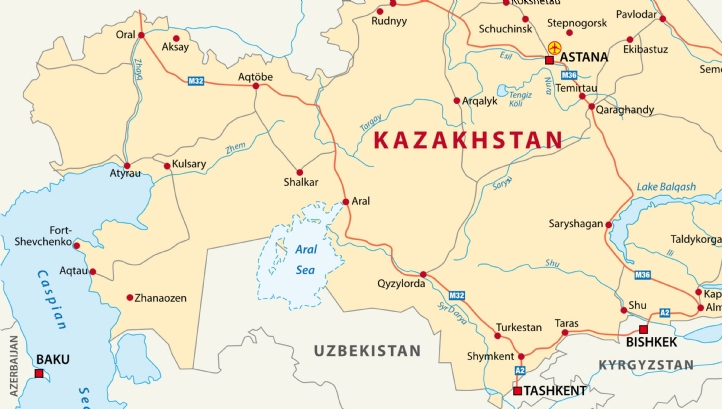Last week, Chinese officials commissioned a desalination plant in the contested territory of the South China Sea. As reported in the Times of India, China is looking to strengthen its presence in the maritime region, having hitherto invested in island-building and naval patrols.[1] The neighbouring countries of Vietnam, the Philippines, Taiwan, Malaysia, and Brunei also claim to sovereignty over the South China Sea (SCS), and its island chains, the Paracels and the Spratlys. The sea is an important base for maritime fishing operations, and functions as a major shipping route, with at least $5 trillion in goods passing through each year.[2]
The desalination plant is located in Sansha City, which Chinese leaders formed in 2012 to administer several island groups and atolls. The plant is owned by Beijing Enterprises Water Group, and will process 1,000 cubic metres of water per day.
[3] In Yongxing Island, which is a part of Sansha, the existing desalination capacity is 1,800 cubic metres of water per day.
This potable water in the maritime region has enabled the settlement of fishermen—“who are considered the forward guards in China’s efforts to claim all of the SCS.”
[4] Although the sea “covers only 2.5 percent of the Earth’s surface, it is home to some of the world’s richest reef systems and over 3,000 indigenous and migratory fish species, comprising some 12 percent of the total global fish catch.”
[5] The fishing industry is critical to the Chinese economy: it generates up to $279 billion annually, and employs between 7 and 9 million fishermen who operate more than 450,000 fishing vessels (of which half are ocean-going ships)—forming “the largest fleet on earth.”
[6]
To the west—far from its border with China—Kazakhstan is building a new desalination plant along the Caspian Sea. The Kazakh government has secured an investor to support the new plant, which will be located in the Mangistau Region, and constructed by the state-owned oil and gas companies, KazMunayGas and OzenMunayGaz.
[7] Nurbek Karassayev, Head of Industrial and Innovative Development in Mangistau, has said that the state will partner with two more investors in order to complete the plant.
[8]
Credit: Desalination.biz
Meanwhile, Singapore’s national water agency, PUB, is tendering a new contract for the country’s fourth desalination plant.
[9] The recipient of the award will be revealed this month. The contract, worth between $400 and $500 million, is premised on a design, build, own, and operate agreement (DBOO). The plant will be located in Marina East, and produce a daily supply of 113,600 cubic metres of water.
[1] “China Opens Desalination Plant in Strategic South China Sea,” Times of India, October 3, 2016, <http://timesofindia.indiatimes.com/world/china/China-opens-desalination-plant-in-strategic-South-China-Sea/articleshow/54659061.cms> accessed October 5, 2016. See also: “Why is the South China Sea Contentious?”, BBC News, July 12, 2016, <http://www.bbc.co.uk/news/world-asia-pacific-13748349> accessed October 6, 2016. [2] It is also possible that the islands have untapped reserves of mineral wealth (exploration has thus far been minimal). “Why is the South China Sea Contentious?”, BBC News. [3] “New desal plant opens in South China Sea disputed territories,” Desalination.biz, October 5, 2016, <http://www.desalination.biz/news/0/New-desal-plant-opens-in-South-China-Sea-disputed-territories/8553/> accessed October 5, 2016. [4] “China Opens Desalination Plant in Strategic South China Sea,” Times of India. [5] For more information, see: “The South China Sea Is really a Fishery Dispute,” The Diplomat, July 20, 2016, <http://thediplomat.com/2016/07/the-south-china-sea-is-really-a-fishery-dispute/> accessed October 7, 2016. [7] “Kazakh government signals ambition to desalinate water from Caspian Sea,” Desalination.biz, October 5, 2016, <http://www.desalination.biz/news/0/Kazakh-government-signals-ambition-to-desalinate-water-from-Caspian-Sea/8552/> accessed October 5, 2016. [9] “PUB to award contract for $400-500m desalination plant next month,” Asia One, September 29, 2016, <http://news.asiaone.com/news/singapore/pub-award-contract-400-500m-desalination-plant-next-month> accessed October 5, 2016.


